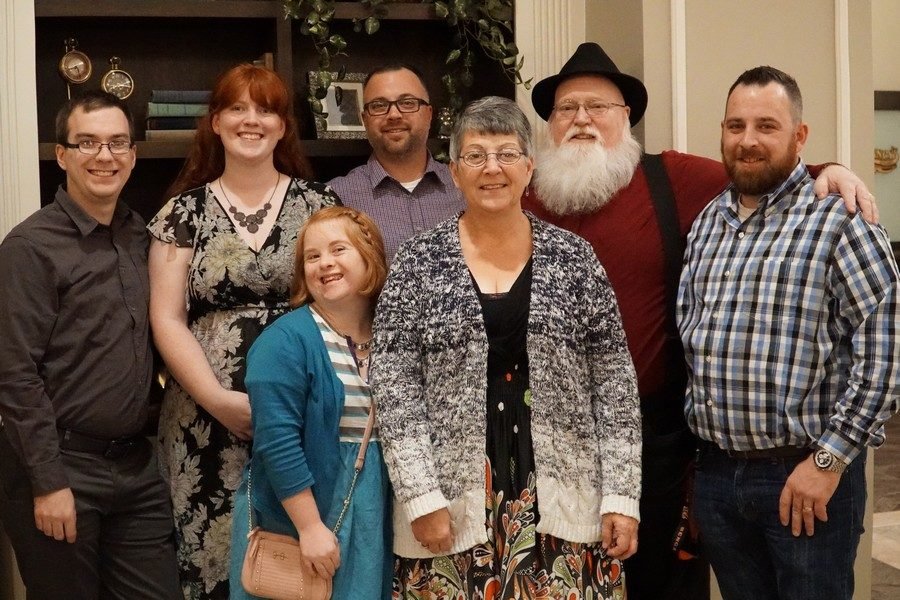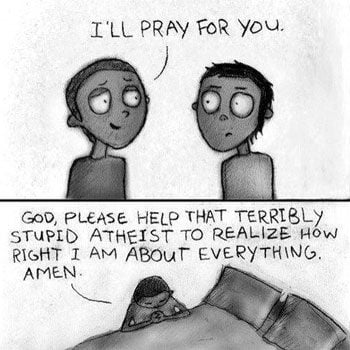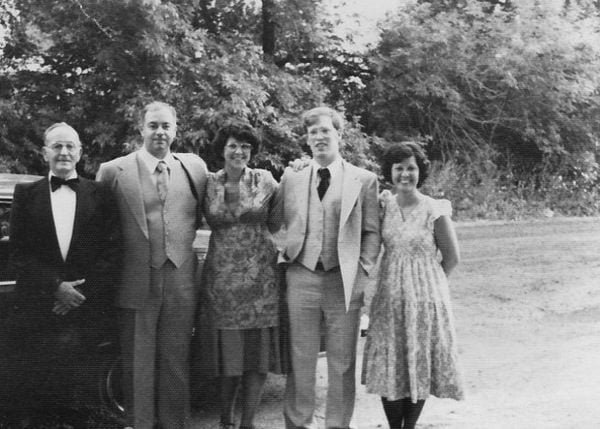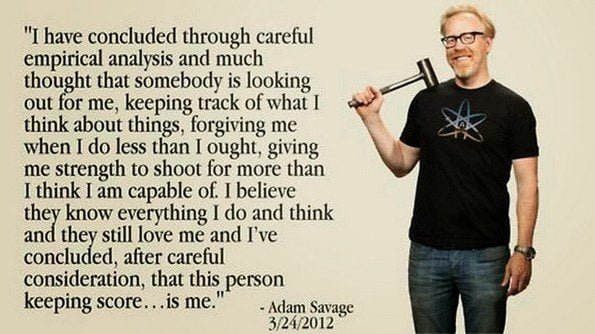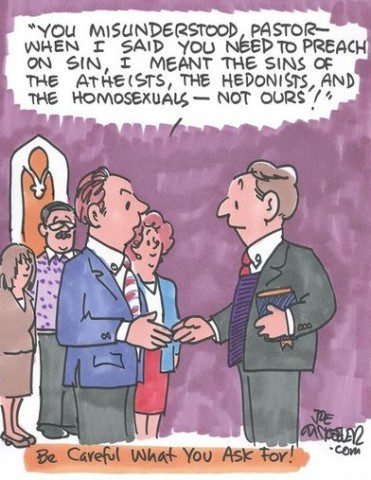
I recently listened to a debate between atheist Tom Jump and a Christian woman named Sybil. By all accounts, the debate was a train wreck. Jump is a low-key, levelheaded debater, but after an hour of Sybil trying to make the same point over and over and over again, I wondered if he was ready to start banging his head on the wall. No matter how many times Jump addressed her point, Sybil returned to claim that Christianity is real because many people believe in Jesus. Because 2.3 billion people profess to be Christians, that means Christianity is true. Sybil reiterated ad nauseam that countless Christians have personal testimonies of faith in Jesus, so Christianity can’t be false. Jump tried and failed to get Sybil to see that personal testimony is not the evidence for God, particularly the Christian God. Countless people say they have seen Bigfoot, the Loch Ness Monster, UFOs, and have been abducted by aliens, yet we have no evidence that their claims are true. So it is with the existence of God.
The debate is one hour and eleven minutes long.
I want to focus on the notion that personal testimony is sufficient evidence for the existence of God — either singular or cumulative.
For those of us who attended Evangelical Baptist/charismatic churches, we know a lot about personal testimonies. Salvation stories were shared from the pulpit, in Sunday school classes, and during testimony times during church services. Testimonies are supposed to a way for believers to give praise and glory to God/Jesus. However, having listened to hundreds and hundreds of testimonies over the fifty years I spent in the Christian church, I can tell you that many testimonies are all about the sinner, not the Savior. What I call “bad sinner” testimonies always get the most attention. In the 1970s and 1980s, Jerry Falwell had countless bad sinners give their testimonies on his TV program, the Old-Time Gospel Hour. At the time, I was mesmerized by these testimonies. However, they have not aged well. We now know many of the bad sinner testimonies were not true. Mike Warnke, for example, claimed to be a Satanic high priest before Jesus saved him. In 1992, Cornerstone Magazine debunked Warnke’s claims. The previous year, Cornerstone trashed the Satanist claims of Lauren Stratford (Laurel Rose Willson), the author of Satan’s Underground.
As Stratford, Willson wrote three books, the most famous of which was Satan’s Underground, purporting to tell a true story of her upbringing as a baby breeder (for sacrifices) in a satanic cult. Willson had also claimed to have first-hand knowledge of high-profile cases of alleged Satanic ritual abuse (including the child abuse cases in Kern County, where she resided), but her claims were dismissed by investigators as unreliable and fabricated.
An investigation by Bob and Gretchen Passantino and Jon Trott in the Christian magazine Cornerstone discovered Stratford’s real name and family background, and that her stories of abuse were false. In interviews with Willson’s family and former associates, it was revealed that Willson had a long history of mental illness and making false allegations of abuse. She repeatedly threatened suicide and practiced self-mutilation. She attracted the attention and sympathy of evangelical author Johanna Michaelsen, one of the most influential promoters of the Satanic moral panic of the period. While living with Michaelsen, Willson claimed to have given birth to three children as a result of rape; two were allegedly killed in snuff films, and the third was supposedly sacrificed in her presence at a Satanic ritual. However, Cornerstone found no evidence that she had ever been pregnant or adopted a child.
She was also briefly involved in the McMartin preschool trial, claiming to have witnessed the abuses and to have been involved in an ongoing lesbian relationship with Virginia McMartin.
Johanna Michaelsen was another Evangelical who built quite a reputation on the testimony circuit.
Rational Wiki has this to say about Michaelsen, the author of The Beautiful Side of Evil and Like Lambs to the Slaughter:
Johanna Michaelsen is a fundie writer and self-proclaimed “authority on the occult” who promoted the Satanic Panic in the 1980s-90s.
….
During the 1970s, Michaelsen claimed to have worked with a psychic surgeon, Pachita, who claimed to do lung transplants, remove impossible tumours and the like, despite considerable evidence that the psychic healer named “Pachita” was far less than claimed. After visiting a Christian centre in Switzerland, she would be convinced that her occult experiences were not from Jesus but Satan. This led to her conversion to Christian fundamentalist.
Michaelsen’s story of her “occult” experiences shot her into fundie superstardom and she became a beacon for other forms of wingnuttery, like the promoting of Lauren Stratford‘s fraudulent Satanic ritual abuse screeds. Michaelsen was one of the biggest defenders of Stratford and supposedly took Stratford into her home for months. She was also a champion of Mike Warnke, author of another fraudulent memoir of his life as a Satanist.
Michaelsen was also instrumental in telling Christian parents the evils of cartoons like He-Man and She-Ra, as well as Dungeons & Dragons. It even turns out that she was Hal Lindsey‘s sister-in-law, until he left Johanna’s sister for a Bible study student.
Although completely discredited, Michaelsen has her own ministry and rants about “demonic spirits,” the evils of the German rock band Rammstein and Halloween.
Despite not making major mentions of Warnke or Stratford in public, it still seems that after all these years Michaelsen believes that Satanic Ritual Abuse is real.
As an Evangelical Christian and pastor, I heard testimonies from believers who said they were mob hitmen, murderers, bank robbers, sex traffickers, perverts, Satanists, renowned sports stars, or atheists before Jesus magically saved them. Over time, I became quite cynical over such testimonies, and today I largely believe that these stories are fabrications or admixtures or truths and lies. Preachers, in particular, are notorious for massaging their testimonies. As David Foster Wallace said (and I paraphrase), don’t let the truth get in the way of a good story.
In 2018, I wrote a post titled Testimony Time: The Blue Light Special at Somerset Baptist Church:
Older readers might remember shopping at the stores of discount retailer Kmart and seeing what was commonly called a “blue light special.” Blue light specials were sudden discounts offered to shoppers during their shopping experience at Kmart. A store employee would roll a cart with a police-like blue light attached to a pole near the aisle where the sudden discount was going to be offered. At the customer service desk, another employee would announce to shoppers, for example, “ATTENTION KMART SHOPPERS! There’s a blue light special going on right now on GE light bulbs in aisle three!” The employee in charge of the blue light would switch it on. and with its flashing/rotating light, the blue light would guide customers to their exciting just-for-them discount on light bulbs. Woo-hoo!
….
For eleven years in the 1980s and 1990s, I pastored the Somerset Baptist Church in Mt. Perry, Ohio.
….
The church also attracted more than a few people who had — in my Baptist eyes, anyway — screwy beliefs. One such person was the mother of a woman who was a member of the church (along with her husband and two children). I had visited this woman and her husband several times at their home, hoping that they would join their daughter, son-in-law, and grandchildren in worshiping Jesus at the “fastest growing church in Perry County” — as the church’s sign said, anyway. I knew the woman had some charismatic tendencies, but I thought I could preach all that nonsense right out of her if she would only give me the opportunity to do so.
….
As was our custom for many years, the church has a testimony time on Sunday evenings. This was time allotted for church members and visitors to stand up and share with everyone in attendance what Jesus had done for them over the past week. Sometimes, these brag-on-Jesus times turned into narcissistic, look-at-what-I-did-done-do for Jesus sessions. Often, testimony time was a time for congregants to lie about their relationship with God. One dear woman, who had been a smoker her entire adult life, stood up one Sunday and praised Jesus for delivering her from the filthy sin of smoking. We had a quite a praise-fest that night, thanking our Lord for delivering Sister R from her addiction. Years later, I learned that Sister R had, in fact, never stopped smoking, and that the only reason she said that she did was so she could have the appearance of a victorious Christian life like the rest of us. Oh, if she had only known that NONE of us, including her preacher, had victory over sin, she might not had felt compelled to lie. Sister R felt so guilty about not being as spirit-filled as the rest of us that she was willing to lie to her friends about her deliverance from smoking.
….
On one particular Sunday night, the charismatic lady mentioned above decided to attend church with her daughter. She had visited several times before, and let it be known that she really liked my “old-fashioned” preaching. Prior to my sermon, I asked if anyone had a good word they wanted to put in for Jesus. Several people raised their hands, signifying that they wanted to brag a bit on their Lord and Savior. The charismatic woman excitedly raised her hand, anxious to let everyone know about a recent encounter she had with Jesus. When it came time for her to testify, she popped up from her seat and said this (as recounted from thirty years ago):
I was asleep last night, and all of a sudden I awoke, feeling a “presence” in my bedroom. As I stood to see this presence, my eyes saw a blinding blue light. Now, I knew that Satan could present himself as an angel of light, so I spoke to this light, saying, If that’s really you Jesus, please make yourself known to me. And right then and there I heard, Attention K-Mart Shoppers! (Okay, that last sentence was a bit of literary fiction, also known as preaching.) And right then and there I heard a voice that said, it’s me, Jesus. Praise, the Lord. I knew then that the presence in my room was Jesus.
I KNEW it was Jesus, the charismatic woman said. This is the same argument Sybil used in her debate with Jump. She knows God is real because she has personal testimony to that effect, as do countless other Christians. In doing this, Sybil is committing the ad populum fallacy.
Wikipedia describes the ad populum fallacy (appeal to popularity) this way:
In argumentation theory, an argumentum ad populum (Latin for “appeal to the people”) is a fallacious argument that concludes that a proposition must be true because many or most people believe it, often concisely encapsulated as: “If many believe so, it is so”.
Just because a large number of people believe something doesn’t make it true. Sybil is a Christian. I assume she thinks Mormonism, Islam, and Buddhism are false religions, and their “gods” are no gods at all. Yet, 1.8 billion Muslims, 500 million Buddhists, and 17 million Mormons think she is wrong. Why should we believe Christianity is true based on the number of adherents, and not these other religions? In fact, upwards of 500 million people are atheists. Using Sybil’s illogical logic, doesn’t this prove that atheism is true?
As of today, Christians have provided no sufficient evidence for the existence of their God (s). However, we do have other explanations for Christianity’s existence, arguments that do not require appeals to myths, magic, or logical fallacies. (Please see Why Most Americans Are Christian.)
Bruce Gerencser, 68, lives in rural Northwest Ohio with his wife of 47 years. He and his wife have six grown children and sixteen grandchildren. Bruce pastored Evangelical churches for twenty-five years in Ohio, Texas, and Michigan. Bruce left the ministry in 2005, and in 2008 he left Christianity. Bruce is now a humanist and an atheist.
Your comments are welcome and appreciated. All first-time comments are moderated. Please read the commenting rules before commenting.
You can email Bruce via the Contact Form.


